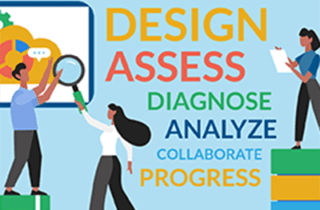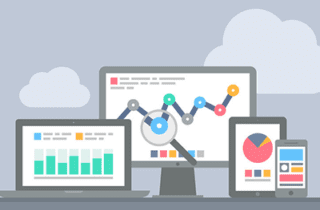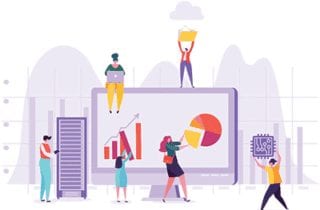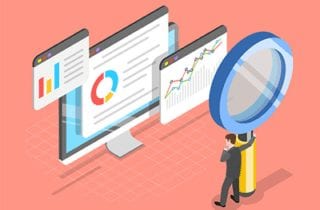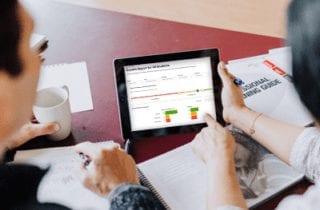Presented by Jason Cianfrance, Mathematics Instructor, Legacy High School, Adams 12 Five Star Schools (CO)
As school districts continue to amass large amounts of data about students, teachers, and educational resources each year, using the data in ways that lead to effective decisions and inform stakeholders has become increasingly important.
Presented by Dr. Julie A. Evans, Chief Executive Officer, Project Tomorrow; and Monica Cougan, Manager, Strategic Relationships and Initiatives, ENA and CatchOn
COVID-19 was tough on schools, calling for swift shifts in teaching and learning practices to support virtual learning environments and a host of new pedagogical demands. The changes altered the educational landscape, inspiring educators to embrace new instructional methods and carry them over to their classrooms once they returned to normalcy.
What skills and training do businesses want from the next generation of workers? That’s the question leaders in the Foster-Glocester Regional School District (RI) asked as they reimagined education for the 21st century. More important—how do they make sure students are succeeding with this new plan? During an edLeader Panel, sponsored by CatchOn, An ENA Affiliate, Eric Butash, Director of Education Technology and Data Integration for the district, discussed how they used data analytics to build their personalized student learning pathways.
Presented by Kelly May-Vollmar, Ed.D., Assistant Superintendent, Educational Services, Desert Sands Unified School District (CA)
Moderated by Monica Cougan, Manager of Strategic Relationships and Initiatives, CatchOn/ENA; and Karen Garza, Ph.D., President and CEO, Battelle for Kids
Presented by Kyra Donovan, ICLE Associate Partner, International Center for Leadership in Education
Moderated by Francie Alexander, SVP Research, Houghton Mifflin Harcourt
Presented by Eric Butash, Director of Education Technology and Data Integration, Foster-Glocester Regional School District (RI); and Leo Brehm, Product Manager, ENA/CatchOn
Moderated by Monica Cougan, Manager of Strategic Relationships and Initiatives, ENA/CatchOn
All educators have now become managers and reporters of data, whether they are classroom teachers compiling information on individual students and sharing it with parents, or top district administrators evaluating teachers, principals, and all their students. Data-driven decisions now determine how students are taught, teachers are paid, and schools are run, so data management and sharing have become crucial job functions. During a recent edWeb edLeader Panel, sponsored by CatchOn An ENA Affiliate, key aspects of organizing and reporting data were discussed by Monica Cougan, Product Marketing Manager, and Leo Brehm, Product Manager, both from ENA/CatchOn, and Erin Hommeland, Director of Planning and Process at Eduscape.
Presented by Jaime Harris, Ed.S., NCSP, School Psychologist, Co-Founder of eduCLIMBER, Illuminate Education


